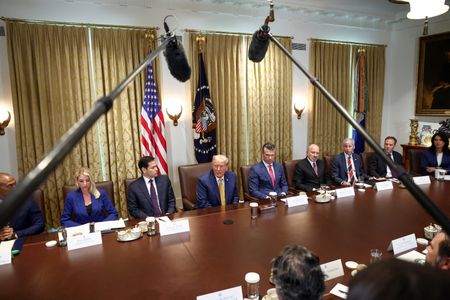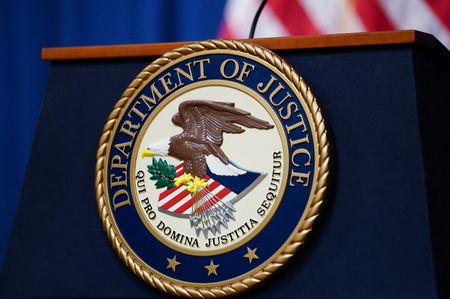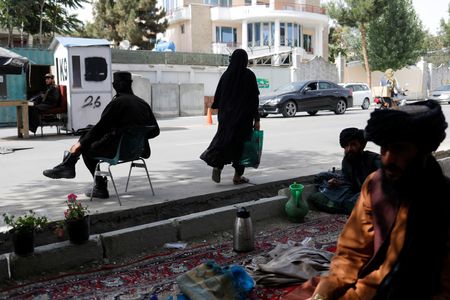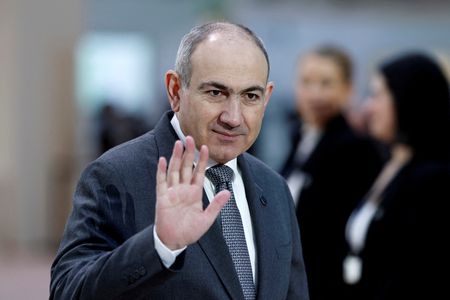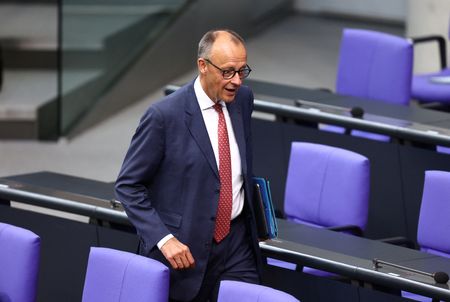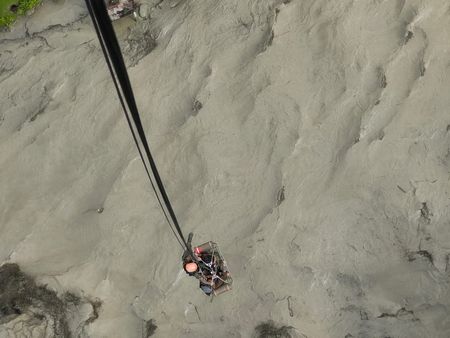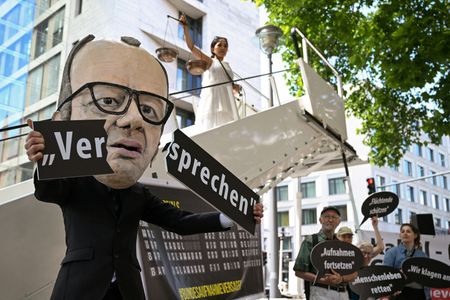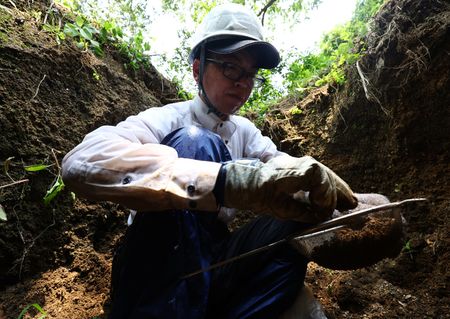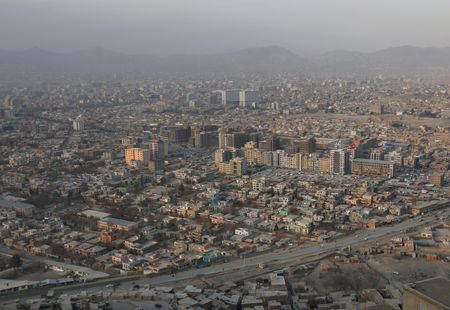By Andrea Shalal and David Brunnstrom
WASHINGTON (Reuters) -U.S. President Donald Trump said on Tuesday South Korea should be paying for its own military protection and suggested the U.S. ally needed to pay more for the U.S. troop presence there, a day after saying he planned to impose a 25 percent tariff on its imports.
“It’s very unfair. We supply the militaries to many very successful countries,” Trump told reporters at a meeting of his Cabinet at the White House.
“South Korea is making a lot of money, and they’re very good. They’re very good, but, you know, they should be paying for their own military.”
Trump said at he had got South Korea to agree to pay more for the presence of U.S. forces during his first term, but his predecessor Joe Biden “canceled” the deal.
“I said to South Korea … you know, we give you free military, essentially, very little,” Trump said, adding that he had told them they should pay $10 billion a year.
“I got three (billion) with a phone call … but I said next year we have to talk,” he said, making claims Reuters has not verified.
Trump said the presence of U.S. forces was a “huge” economic benefit for countries that hosted them.
“It’s like having a city, it’s tremendous money for them, and it’s a tremendous loss for us … so we’re talking, in a very nice way, We’re talking to them.”
South Korea hosts about 28,500 American troops as a legacy of the 1950-1953 Korean War. It relies on the U.S. nuclear umbrella for protection against China, Russia and North Korea, and is seen as a key ally for projecting U.S. military power.
Shortly before last year’s U.S. election, South Korea and the Biden administration hurried to sign a new, five-year agreement under which Seoul would raise its contribution toward the upkeep of U.S. troops by 8.3% to $1.47 billion in the first year, with later increases linked to the consumer price index.
During his election campaign Trump said South Korea should pay as much as $10 billion per year, and has said such costs would be part of trade negotiations.
Trump in the past has suggested he could withdraw U.S. forces stationed overseas if countries did not pay more for their upkeep.
In May, the Pentagon said a Wall Street Journal report that the U.S. was considering withdrawing roughly 4,500 troops from South Korea was not true.
(Reporting by Andrea Shalal, Jeff Mason and Doina Chiacu, Editing by Franklin Paul and Alistair Bell)

